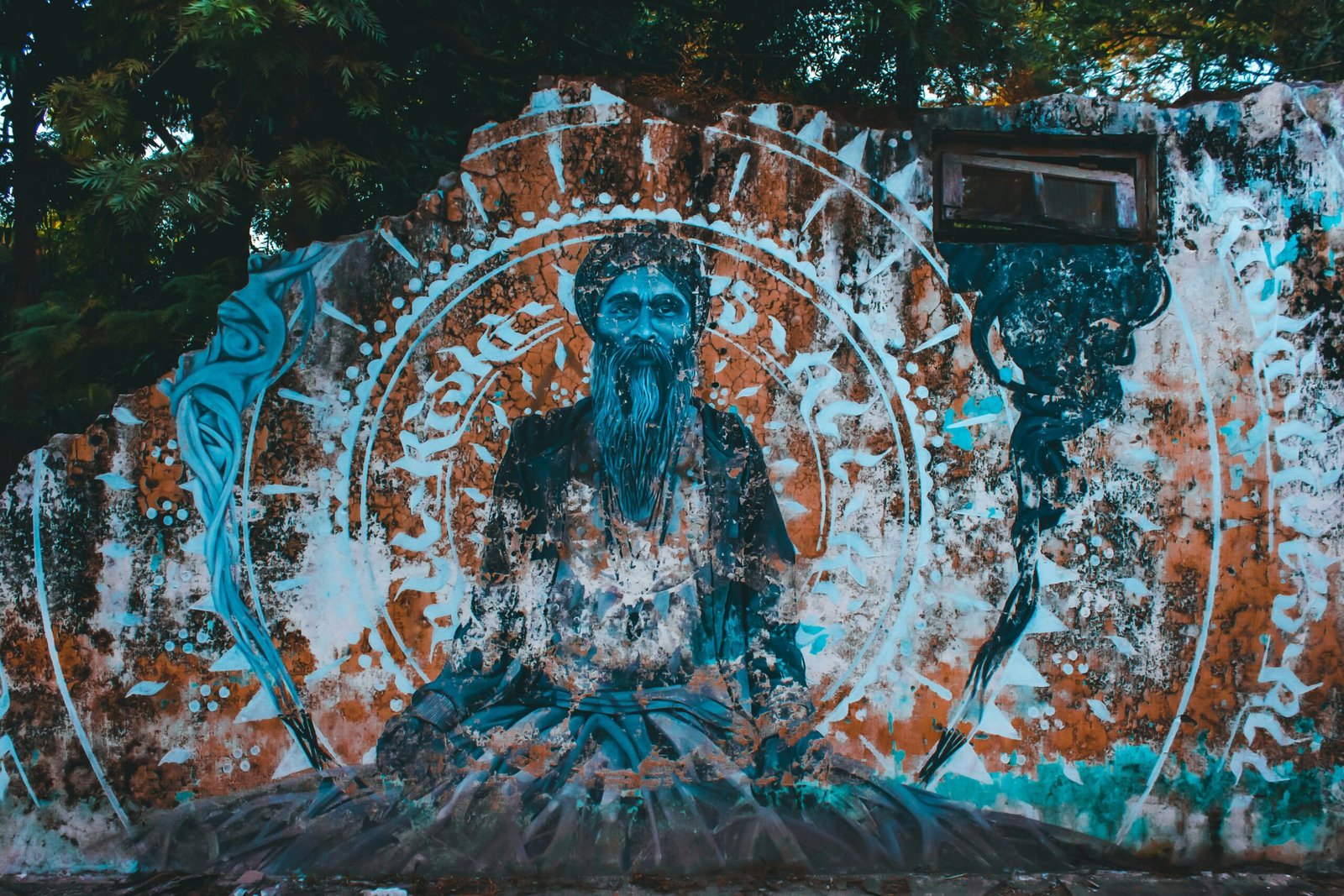- Unbreaking The News
- Work
- Life
- Lifestyle
- HumanityDiscover the latest trends, style tips, and fashion news from around the world. From runway highlights to everyday looks, explore everything you need to stay stylish and on-trend.
- Mental HealthStay informed about health and wellness with expert advice, fitness tips, and the latest medical breakthroughs. Your guide to a healthier and happier life.
- Science & Technology
- Literature
- About Us
- Unbreaking The News
- Work
- Life
- Lifestyle
- HumanityDiscover the latest trends, style tips, and fashion news from around the world. From runway highlights to everyday looks, explore everything you need to stay stylish and on-trend.
- Mental HealthStay informed about health and wellness with expert advice, fitness tips, and the latest medical breakthroughs. Your guide to a healthier and happier life.
- Science & Technology
- Literature
- About Us
Now Reading: Monk-y Business: A Lost Lawyer In The Himalayas
-
01
Monk-y Business: A Lost Lawyer In The Himalayas
- Unbreaking The News
- Work
- Life
- Lifestyle
- HumanityDiscover the latest trends, style tips, and fashion news from around the world. From runway highlights to everyday looks, explore everything you need to stay stylish and on-trend.
- Mental HealthStay informed about health and wellness with expert advice, fitness tips, and the latest medical breakthroughs. Your guide to a healthier and happier life.
- Science & Technology
- Literature
- About Us
- Home
- Mental Health
- Monk-y Business: A Lost Lawyer In The Himalayas
Monk-y Business: A Lost Lawyer In The Himalayas
Mental Health, EditorialYesterday4 Views

Hippie birthday to you!
I celebrated my 30th birthday at a meditation retreat in Rishikesh, India – in the foothills of the Himalayas. As I finished my last evening meal at the ashram, an iridescent birthday cake arrived for me on a motorcycle. In one of life’s more surreal moments, a disparate group of travellers, yogis and mystics sang ‘Happy Birthday’ while I blew out the candles.
For creative types, turning 30 seems to be some sort of ‘watershed moment’. Almost everyone I admire creatively has produced what history records as their ‘best’ work in their Twenties. As I approached my watershed, I was prepared to be ostracised from my own artistic circles because of it. Even though, in 2025, house prices, living costs and life expectancies mean that the Millennials are living in a decade-deficit to the milestones of our elders, turning 30 is still where it all ends.
…but I’d only seemed to hit my groove at around 25 and to be allowed just 5 years to nurture it felt like being short-changed.
My colleagues treated the Big-Three-Oh as a watershed too: to have a mortgage, a fiancée, another rung on the promotional ladder (and salary injection to prove it). Well, I had the mortgage and I had the fiancée but the ladder had revealed itself as a greased pole and the move from paper money to plastic meant that my bonus packet wouldn’t dry it off, no matter how much I threw at the problem.
Telling people at the office that I was going away for my 30th birthday was invariably met with the half-century-ingrained disdain for ‘the Hippie’. The idea that meditation was the answer to anything – this airy-fairy, cult-like pretence – was seen as a pointless pursuit in the face of “The Real World”. If I wanted to be the successful person I was firmly en-route to becoming, then I needed to avoid the poisoned temptation of the Hippie Trail. I might as well have been telling them they needed to “Turn-On, Tune-In and Drop-Out” – the classic Summer Of Love soundbite now used to ridicule the tie-dye, pie-in-the-sky delusions of the ‘Flower Power Generation’.
(Image courtesy RG Visuals of via Unsplash)
I know it would be naïve to proclaim the solution to world peace is free music, daisy chains and communal love, but I’ve always found it bizarre that the psychedelic movement’s core ideas of tolerance, acceptance and understanding are treated as hopeless rose-tinted relics rather than an aspirational blueprint for the future of humanity. As if carrying on with hating, stealing and killing is a more natural status quo. It seems incongruous with the values we’re taught as children – the values we’re supposed to embody as adults if we’re to be good world citizens.
What turns us against humankind’s capacity for kindness to humans? And why are those of us who want to preserve it treated as unrealistic dreamers unfit to participate in adult life? A crusade against these perils of growing-up was as good a reason as any to embark upon a quest for ‘Eastern Answers’. The extreme stress and anxiety I was experiencing at work every day was just a bonus.
I hoped that my entry into the Fourth Decade would open the doors to the Fifth Dimension…
What I did on my holiday
By the way, this isn’t one of those CULTURE-SHOCK pieces where the white, middle-class tourist reports on poverty’s romanticism from the laundered-linens of his 5-star suite. It’s not even an attempt to convey the mystical experiences I witnessed in India – to do so would be futile. If someone had told me that hallucination can be achieved through breathing alone and would cast-off years of hang-ups and self-doubt, without seeing it for myself, I wouldn’t believe it either…
I arrived at the ashram after a morning flight from Delhi. The drive from the airport through increasingly-clean air was a welcome relief that I’d left the madness of Delhi, Agra and Jaipur behind; their city smog replaced with mountain mist. I was about to go completely off-grid.
I was shown into a colourfully-painted office where my expectation to receive a marigold garland and a secret mantra was swiftly shot down when I was asked if I’d paid my balance via bank transfer and was given the Wi-Fi password. How about that for a culture shock? I suppose, for a walking, talking, juxtaposition like me – a corporate lawyer clinging to hippie ideals – it was fitting that these clashing opposites should extend to my search for spirituality.
Of the 19 students at the ashram (from 10 countries and 4 continents), all 19 were Millennials and all 19 worked in corporate settings: a group of generational misfits reaching their watershed moments together.
Were we all looking to ‘drop-out’?
I’d flirted with meditation for years with little success. I thought transcendence was about preventing thought and stopping the brain. My time in Rishikesh – and its daily schedule of yoga, meditation, spiritual teaching and reflection – taught me that it’s actually about tolerating thought and letting it wash over me. By giving myself something simple to return to when a thought enters my mind, I can allow it to leave just as quickly. It’s about accepting that negative influences are a part of modern life and understanding that while we can’t control the negativity of others,we can control how we process it. As my favourite teacher there explained: “we are the ocean, not the waves. Though the waves are part of the ocean, the ocean can never be part of the waves”.
I’ve learned to treat meditation not as some ‘higher consciousness’ but as a practical application which brings clarity of mind. Meditation done right doesn’t stop the brain: it slows it so I can live in the spaces between the thoughts. Like a ceiling fan spinning at full-tilt: you can’t distinguish the individual blades. The human mind is the same.
Any souvenirs?
Looking back, telling my colleagues my reasons for going to India and what I was hoping to bring home with me was probably my way of raising concerns for my wellbeing at work.
The funny thing is that my workplace required anyone going on holiday to check their emails three times a day and so I had to obtain special permission to leave my work phone at home. To me, this was an opportunity for my managers to engage with the concerns of its people and the destructive effects of its working practices on their mental health. Instead, approval was granted because taking my phone to India “posed a national security risk”. An opportunity missed, which I let wash over me like waves in the ocean…
…but India was my decider to quit the corporate sphere: it convinced me to ‘drop-out’. Maybe that means I’ve failed to incorporate meditation as a coping technique for the negativity of modern life. Or, maybe my newfound clarity will enable me to change things for those left behind, even if I’m now on the outside looking in. For anyone in a similar position, I’ll say this: you don’t need to drop-out to turn-on and tune-in, but it might help.
Jordan Frazer
Jordan Frazer is a freelance writer and musician. He writes as C.P. Doosly – the Anxiety Uncle of the Millennial Generation and is the singer and guitarist of London band The Stylus Method. He is a vegetarian, a yoga & meditation enthusiast, and Beatles-obsessive. He loves almond croissants and supports Newcastle United. He is married to Samantha. He is an ex-commercial litigator, qualified personal trainer and is working on several fiction and non-fiction book projects centered around arts & culture.
Thank you to Yosef Baskin for his inspired edits on the piece.
Stay Informed With the Latest & Most Important News
Previous Post
Next Post
Previous Post
Next Post
Editors' Pick4 days ago
Cadence: I Got Rhythm























